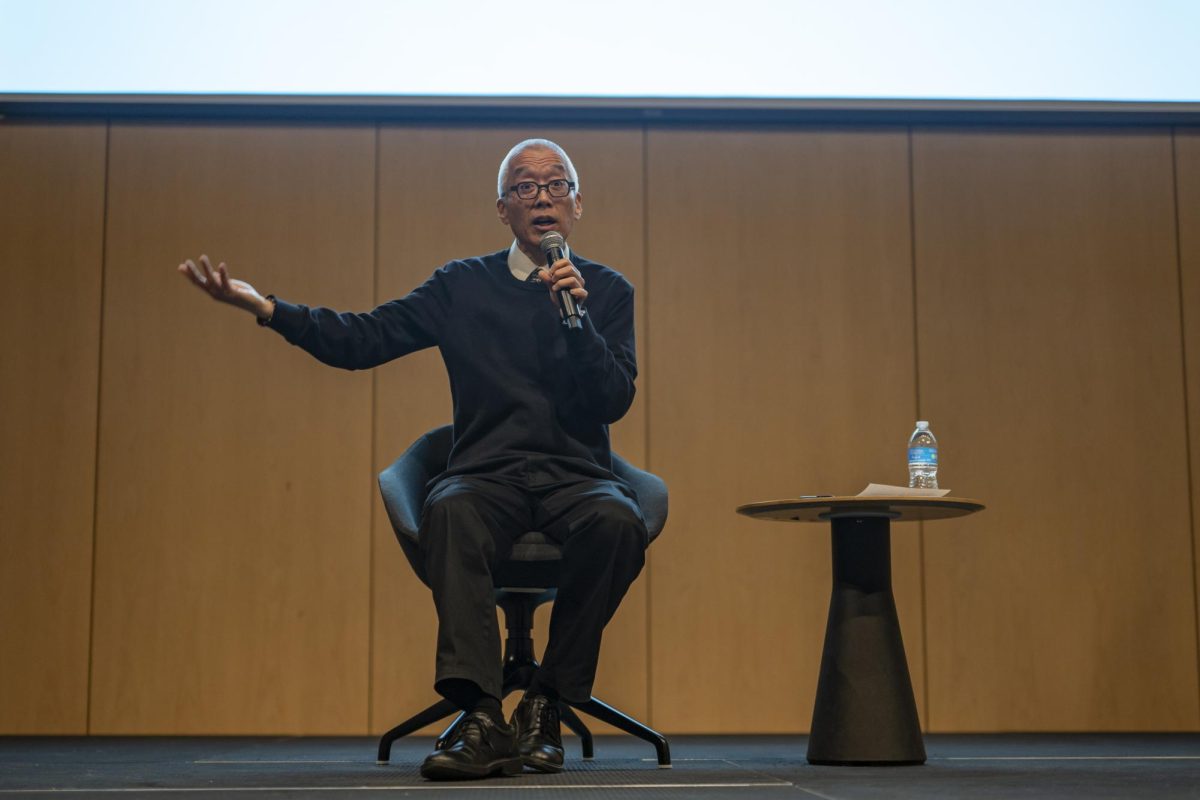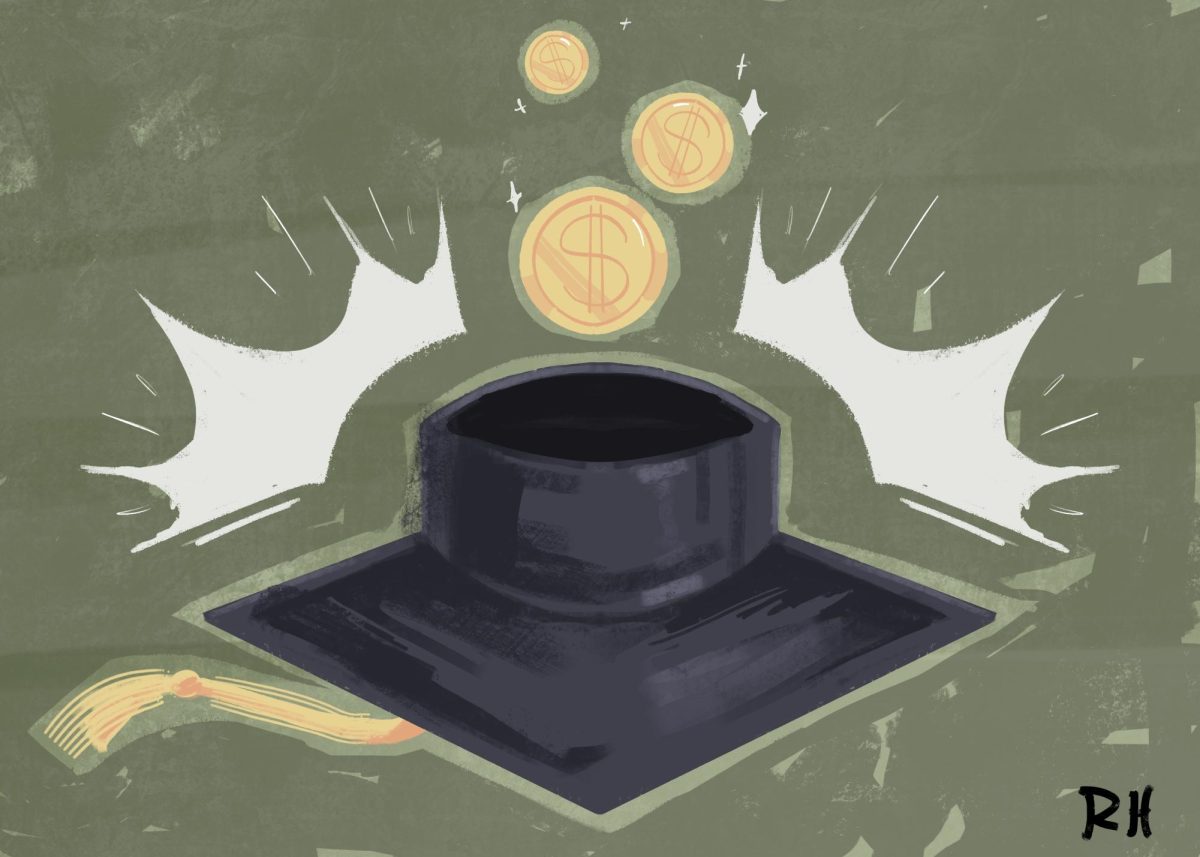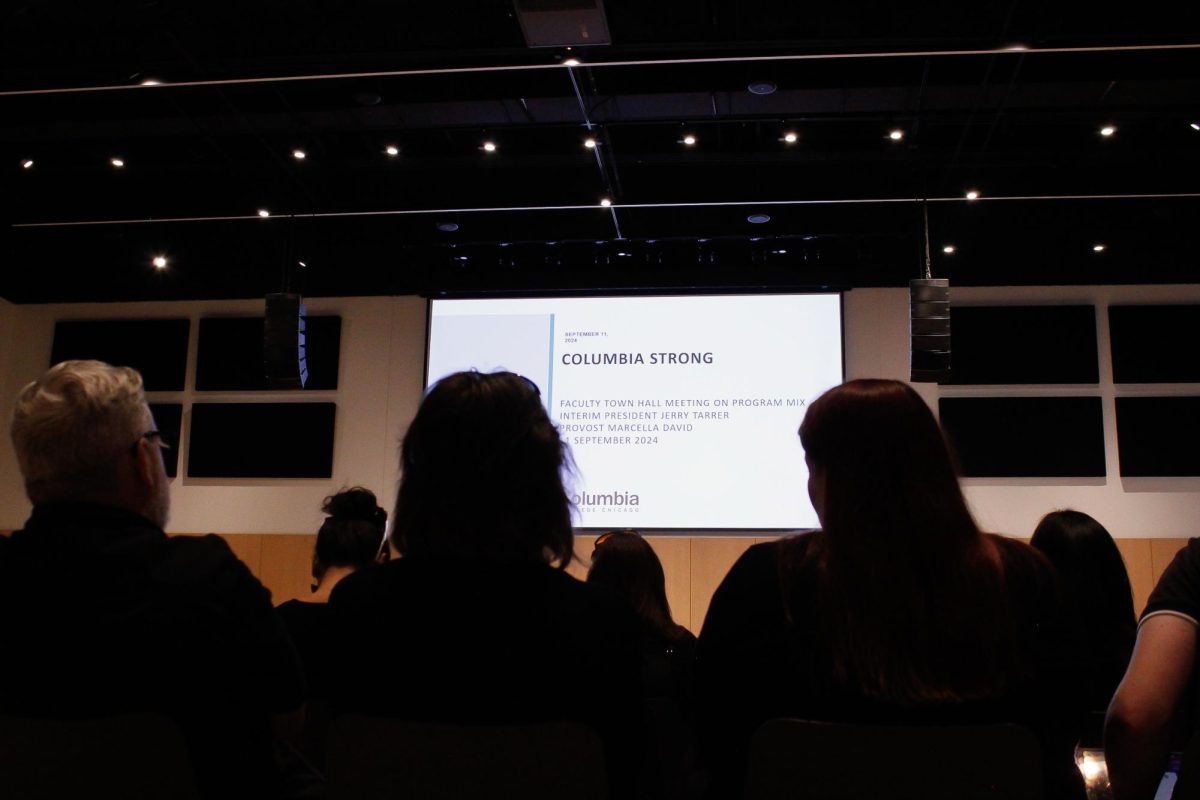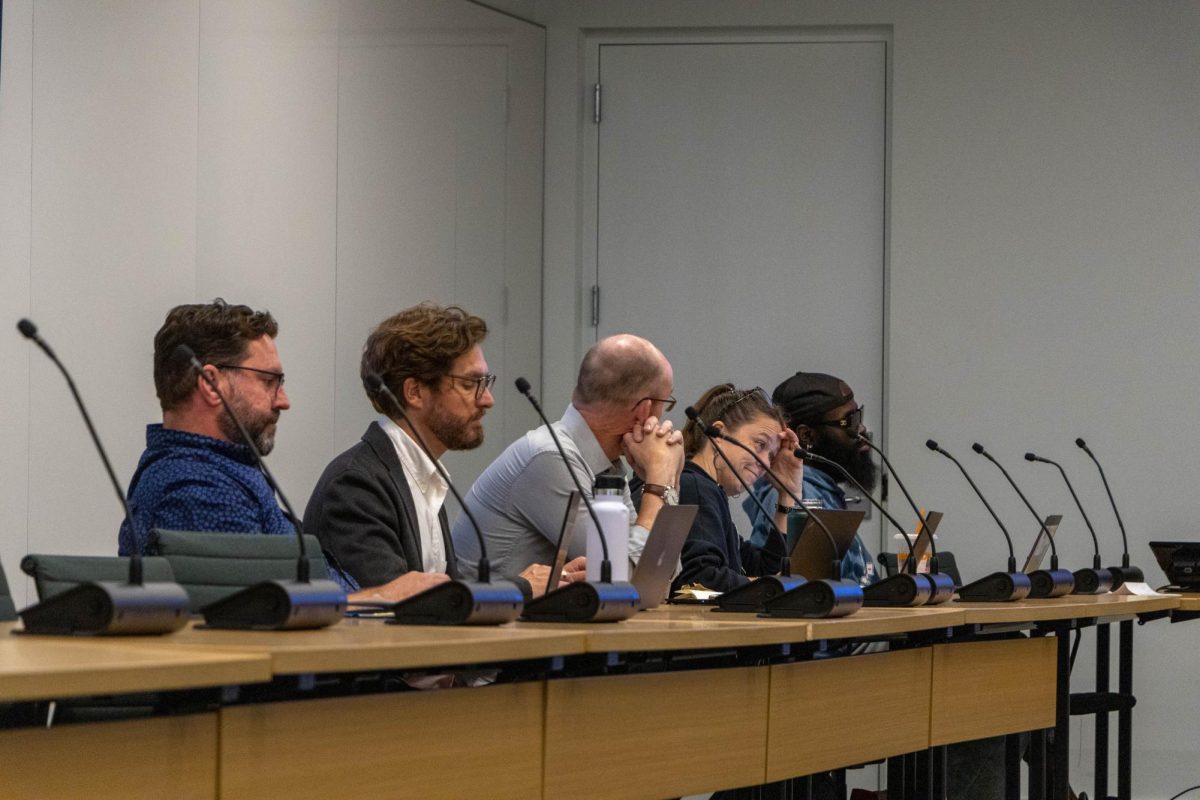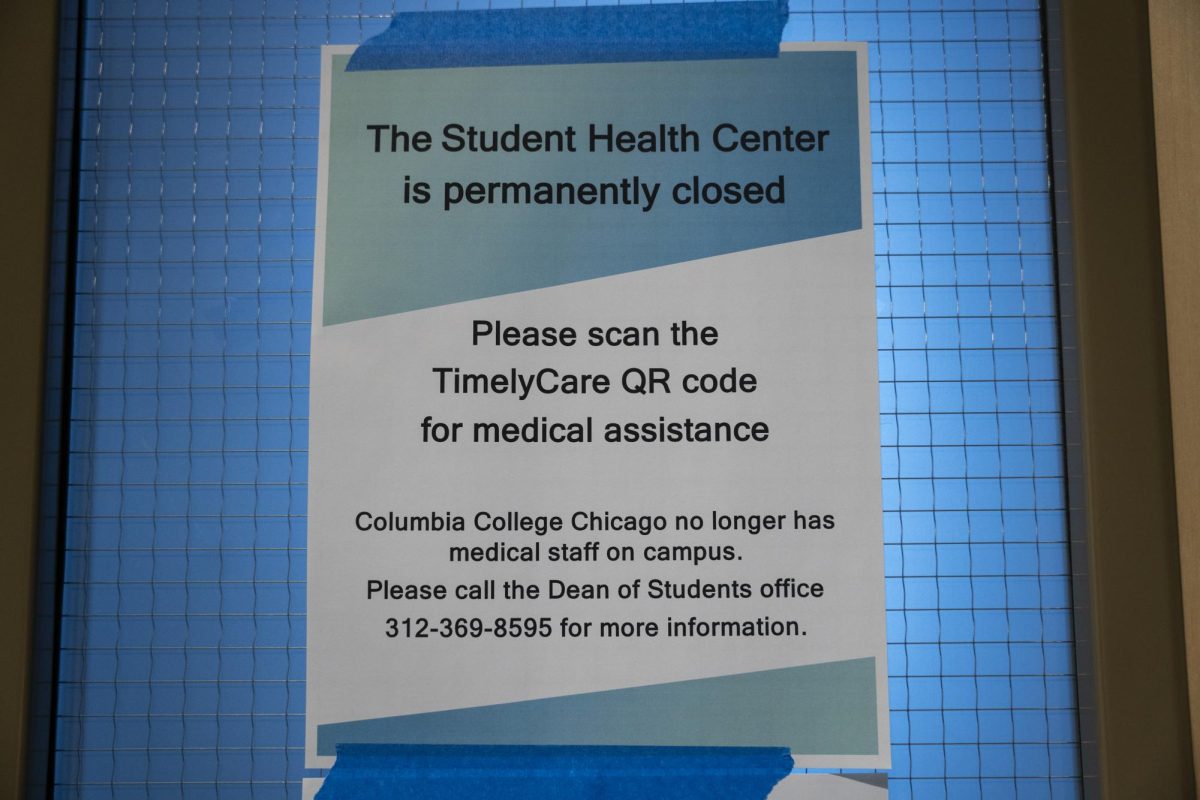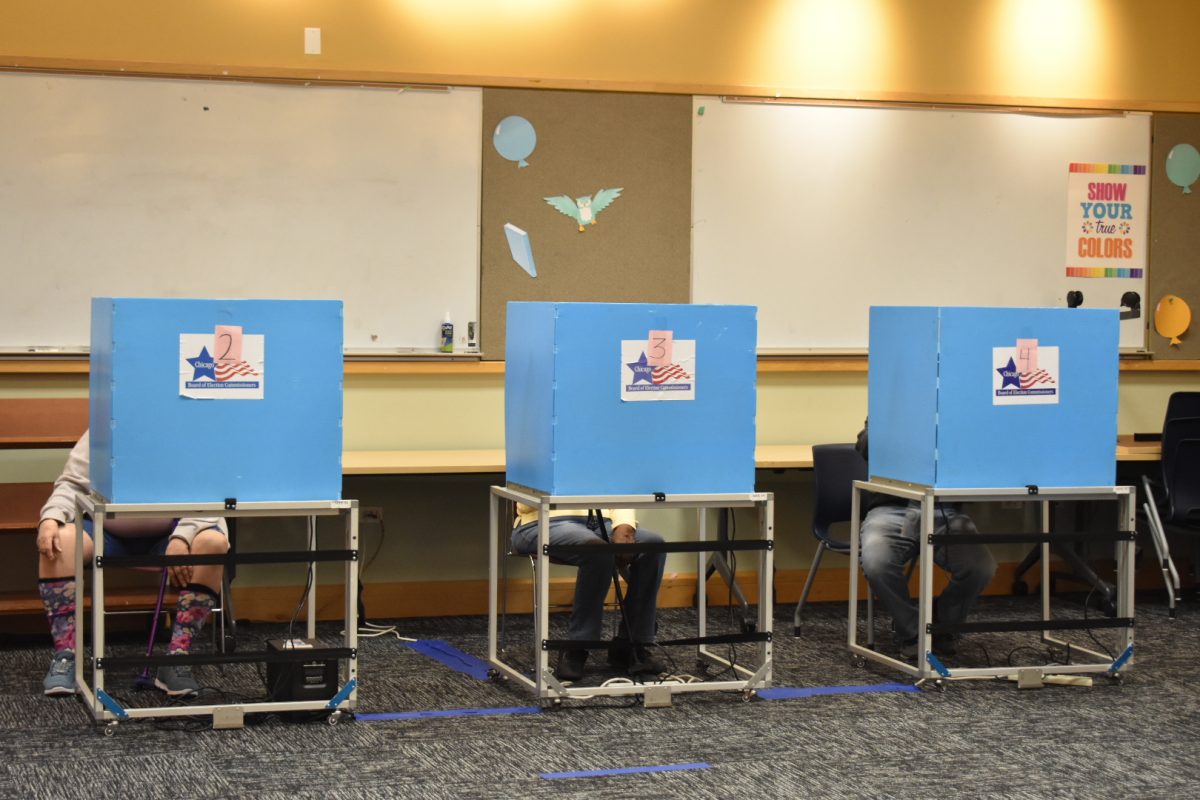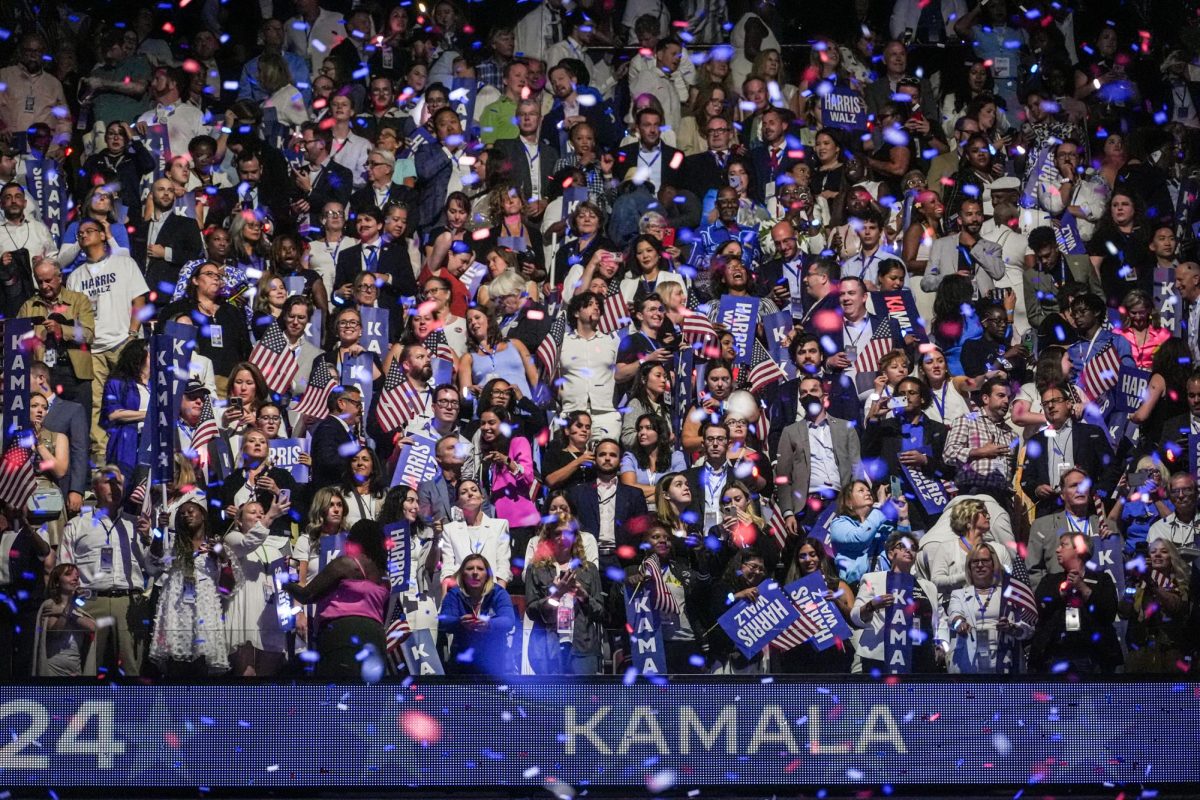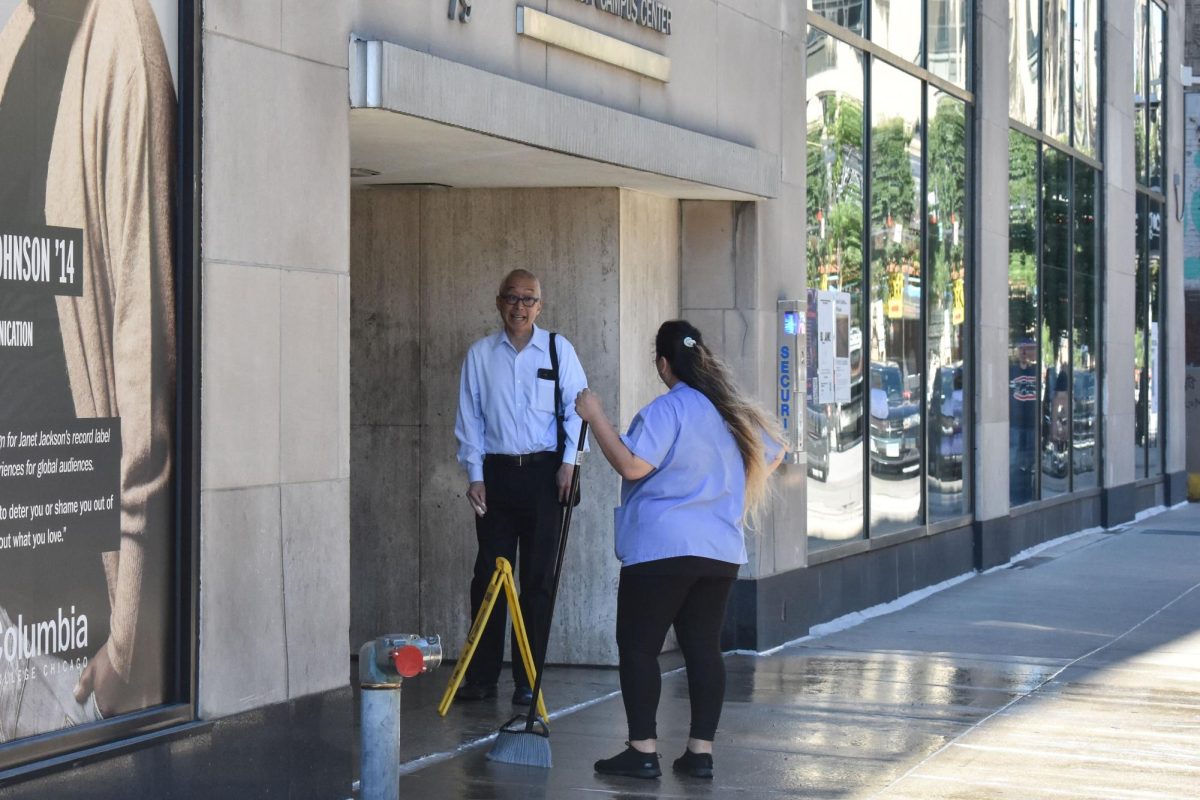The college is immediately putting a freeze on all hiring, including the new dean of the School of Media Arts, as the deficit grows to $38 million.
In his “State of the College” address on Tuesday, Feb. 6, President and CEO Kwang-Wu Kim said the historic seven-week strike by the part-time faculty union resulted in an additional $13 million in one-time costs, which increased the financial gap the college was trying to close. The deficit had been at $20 million.
Kim told faculty that in an attempt to reduce the deficit, the college will implement an immediate hiring freeze and identify $19 million in budget cuts for the fiscal year beginning in September 2024. It also will draw from the endowment.
Kim also said due to “reputational damage” from the strike, student applications for the fall 2024 semester are down 11% below what they were during the fall 2023 semester.
It is projected that this will result in $20 million in lost tuition revenue for fall 2025.
“This is what is called a financial crisis,” Kim said. “This doesn’t mean the college is on the verge of closing. It means we all have to think about this and pay attention and figure out what we are going to do.”
Kim also confirmed that there will be an increase in tuition but did not specify how much.
Most immediately, the college will not move forward with hiring a new dean for the School of Media Arts. Three candidates selected by a search committee just visited campus in late January. Interim Dean Tom Dowd had been expected to step aside when the new dean arrived.
Asked by the Chronicle to clarify the president’s remarks about the dean search, Senior Associate Provost Nathan Bakkum said only that it had been halted.
“I don’t have anything to say beyond that in terms of whether that’s a temporary halt or how long that is,” he said. “But for the moment, we just had three candidates on campus. And for the moment, there won’t be a determination.”
Strike by the numbers:
The college had expected that wages would go up at the end of the contract period with the Columbia Faculty Union, which ended in August. But the strike, which lasted seven weeks, cost the college money beyond that, including $7.8 million in tuition credits for classes impacted by the historic strike.
Kim said additional costs from the new bargaining contract with part-time faculty will cost $1.4 million for fiscal year 2024.
The college also lost $4 million in tuition revenue from students who did not return this spring after the strike.
The part-time faculty union walked out on Oct. 30 in a dispute over cost-cutting measures to reduce the deficit, which was $20 million at the start of the fall semester.
What faculty and staff are saying:
Eric May, associate professor of English and Creative Writing, said Kim’s message was “blunt and straightforward.”
“It was hard news, but it seems it was striking. Folks should take it clearly for what it is,” May said. “There’s an iceberg out there, but we haven’t hit it yet.”
Ginny Johnson, assistant vice president of Student Financial Services, said she was not surprised by what Kim had to say.
“While it’s sobering news, it’s something that I kind of expected was going to be discussed today,” Johnson said. “I am encouraged by the sense of community that we have and I really think that if we pull together we can accomplish and get through this.”
Kim delivered the Feb. 6 address in person at the Student Center. He will speak again on Wednesday, Feb. 7 on Zoom.


